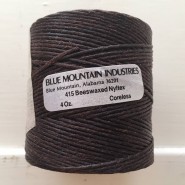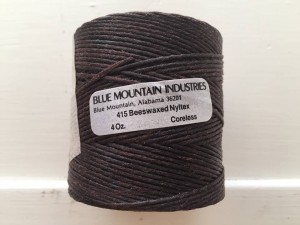
A wide range of threads is available to shoe manufactures and it is important that closing room supervisors select the right one for the right job.
The choice of thread for closing nay particular type of upper is governed by several factors:
- Breaking strength
- Elasticity
- Appearance when stitched
- Uniformity
- Resistance to abrasion, bacteria, mold
- Able to take lubricants
- Cost
It is true to say that these factors are complementary, to some extent to each other, but each should be considered separately.

Shoe Making Threads
Breaking strength:
Breaking strength is obviously of great importance, not only for the eventual strength of a seam, but also to withstand the production of the stitches by the machine.
Elasticity:
Elasticity allied with strength is an important asset in all threads, allowing a certain amount of give to the seam during lasting and wear. However, too much elasticity could result in gaping seams.
Appearance:
Appearance of the thread once it is stitched must be considered especially where a neat orderly row of stitches is required, as in fancy stitching.
Uniformity:
Uniform thread is essential if machines are to work without breakdown. The sewing machine being, in most cases, a delicate and finely adjusted mechanism will not work correctly if the thread is not uniform throughout.
Resistance to abrasion:
Bacteria and Mold is necessary for a thread to be able to stand up to wear. It must be able to stand a certain amount of rubbing; from the foot and a great deal of friction when it is being stitched.
A great deal of friction:
A great deal of friction is caused when stitching some types of materials, a way of cooling lubricant.
Cost:
Cost if one is to produce good quality upper the above factors must be examined for one the correct quality if found.
There are three basic types of threads:
- Natural Fibers
- Synthetic Fibers
- Blended Fibers (Polyester)



